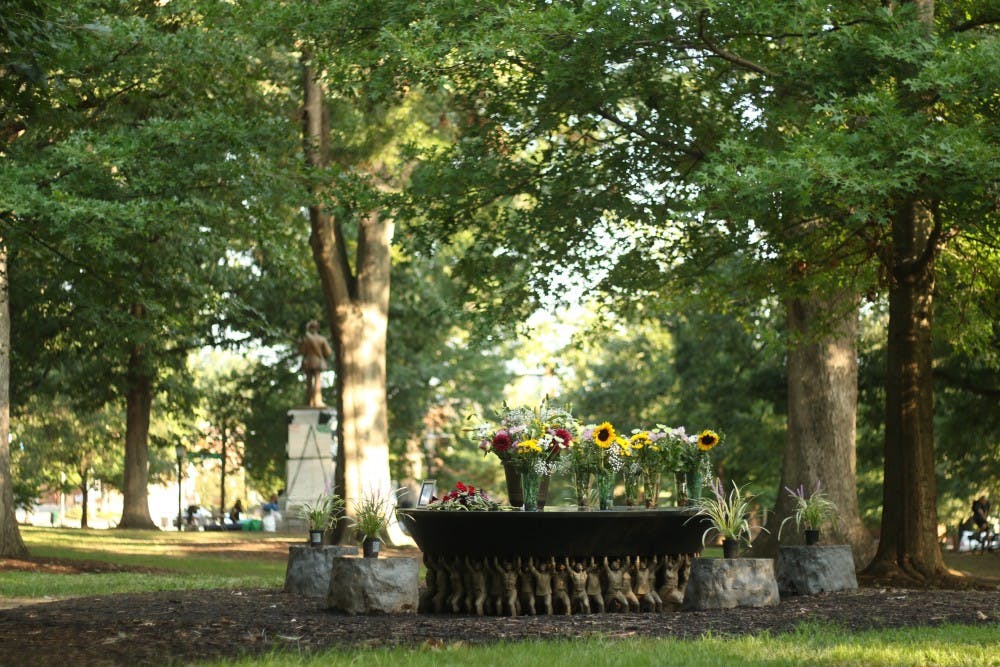UNC’s Commission on History, Race and a Way Forward welcomed four new student members and heard from the University of Virginia President's Commission on the University in the Age of Segregation at its third meeting Friday.
The commission also discussed the future of the Unsung Founders Memorial in light of the COVID-19 pandemic at the meeting, held virtually over Zoom and livestreamed on YouTube.
Co-chairperson Patricia Parker began by introducing the commission's new student members: graduate students Ariana Avila and Danita Horton and undergraduate students Sydni Janell Walker and Graham Watkins.
Learning from UVA’s commission
Jim Leloudis, chairperson and a professor in the history department at UNC, asked the guests from UVA to share thoughts and advice for staging a large multi-year project similar to the one the commission is currently undertaking.
Kirt von Daacke, assistant dean and professor of history at UVA and chairperson of their commission, said that UVA had been working to come to terms with the institution’s past and broader impact on the local community, region and state through the UVA President's Commission on Slavery and the University, established in 2013.
Von Daacke said the Commission on Slavery and the University, which is complemented by the work of the President's Commission on the University in the Age of Segregation, originally focused on memorialization and research at UVA, but those goals have since expanded.
Today, the Commission on the University in the Age of Segregation is informed by a restorative justice model. Its ultimate goals include acknowledgement, outreach, education and repair, von Daacke said.
“It requires a transparent process, not just by the commission, but by students, faculty, staff and mostly importantly the larger community in which the university has been embedded for the past 200 years,” von Daacke said. “We have continually expanded what we have understood community to mean and let that shape what we are doing.”




